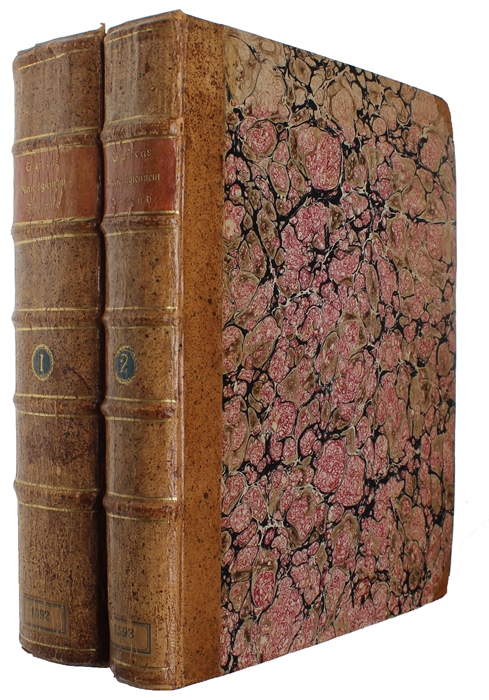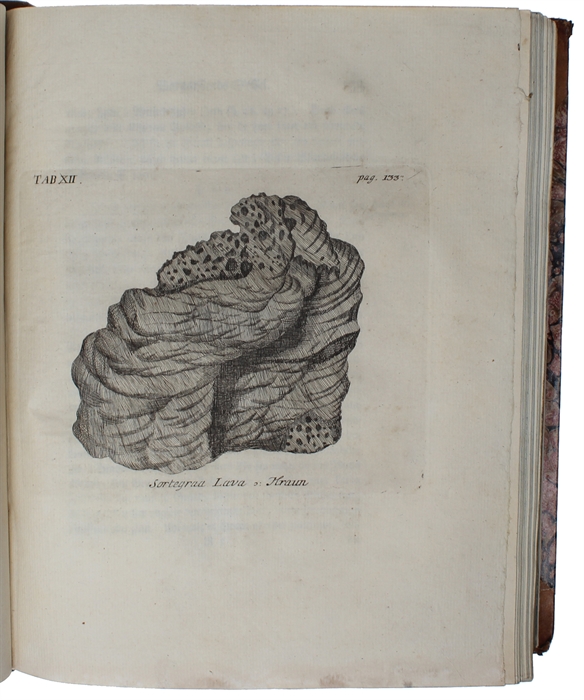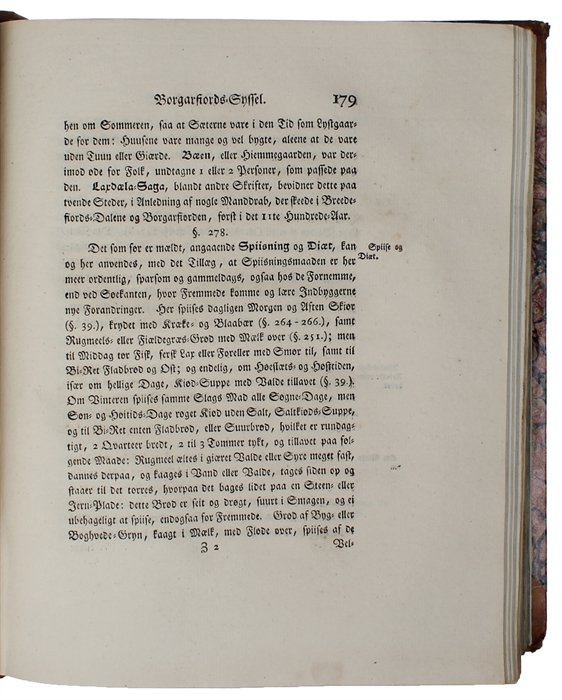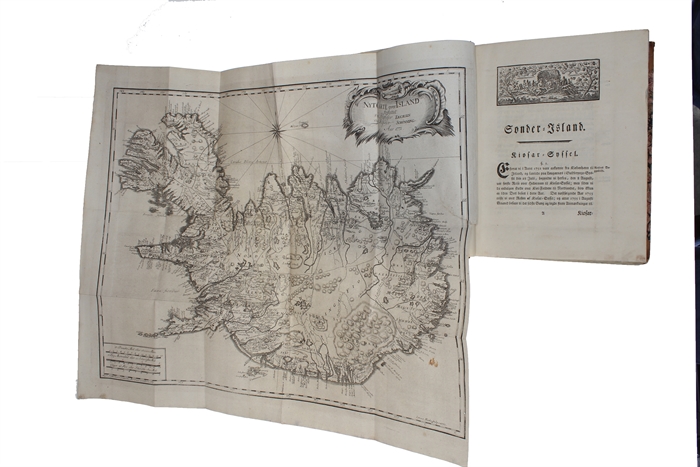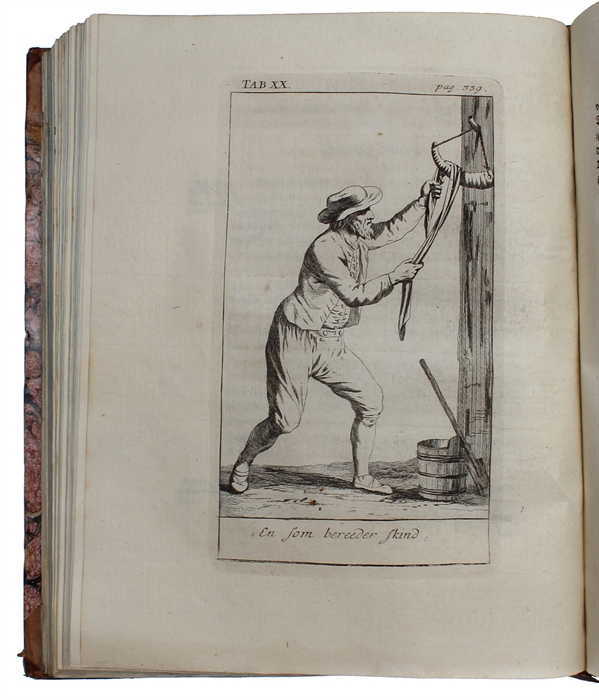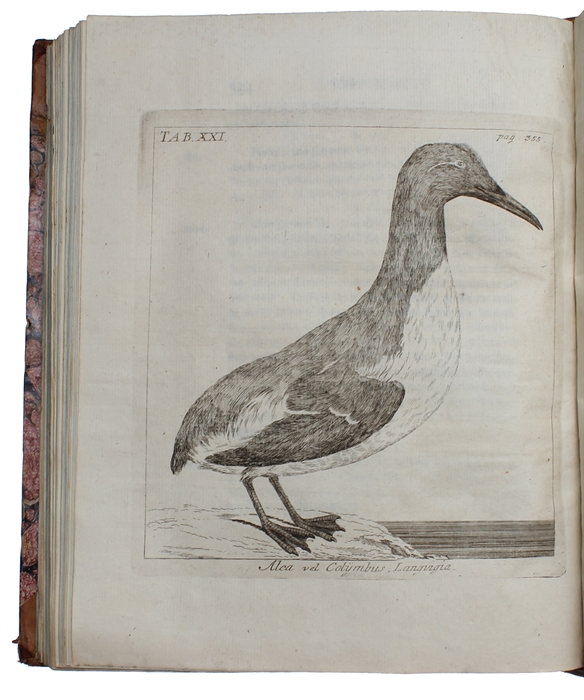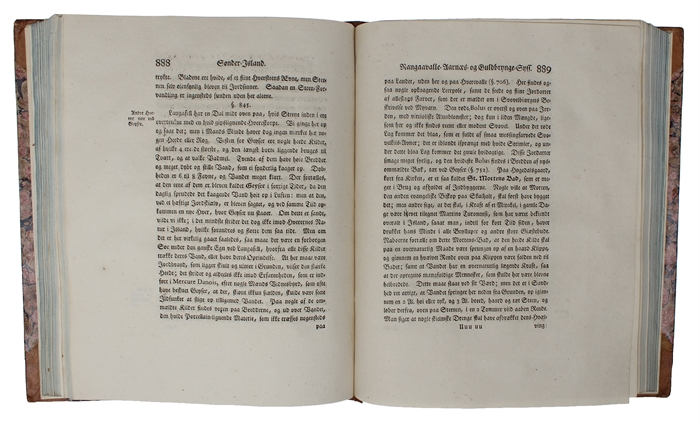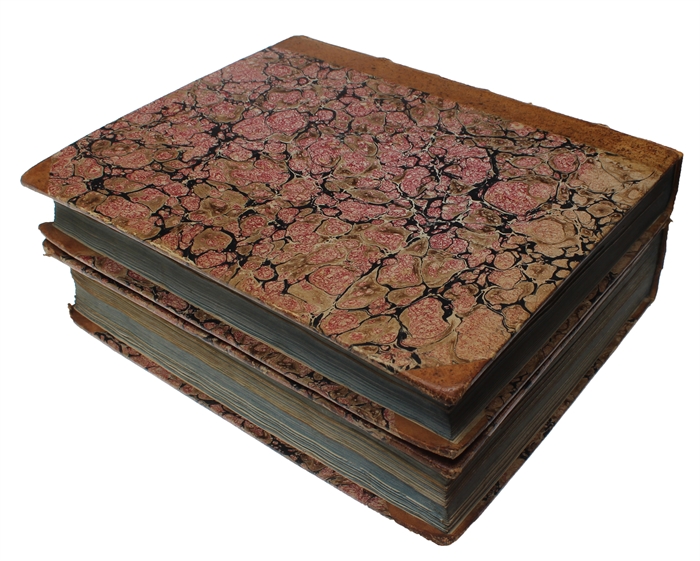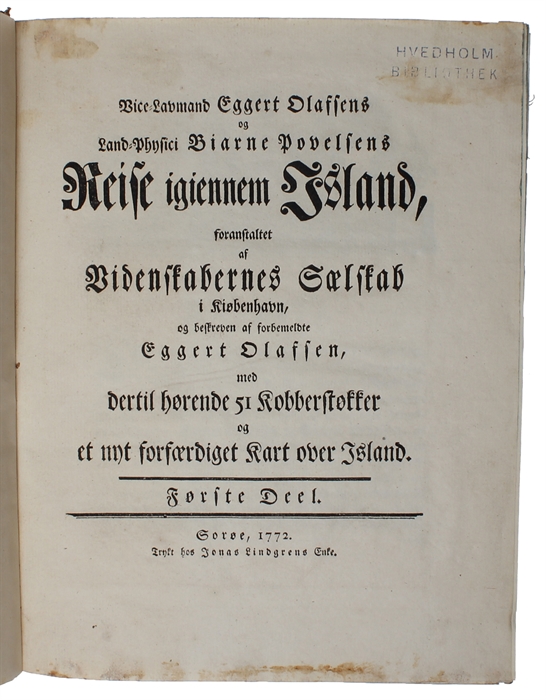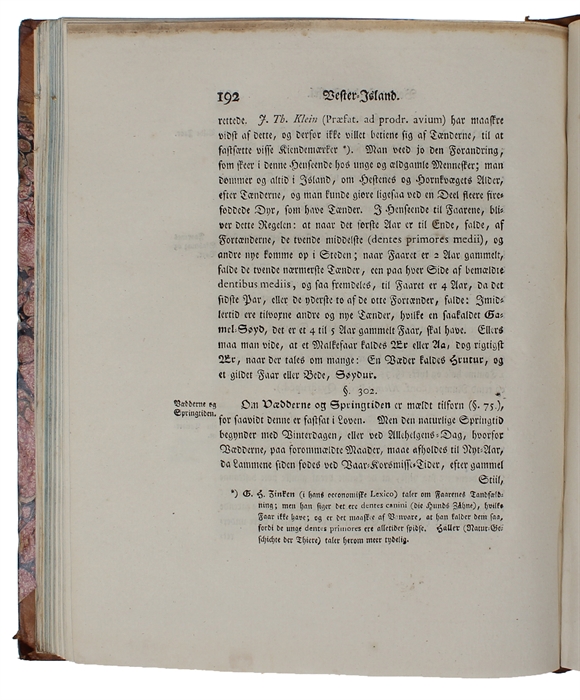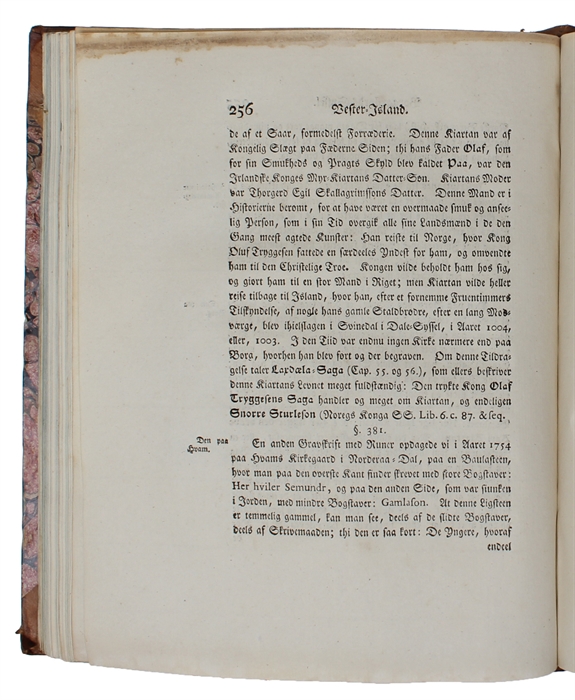EXCELLENT COPY OF OLAFSEN'S FOUNDATIONAL WORK ON ICELAND
OLAFSEN (OLAFSSON), EGGERT (+) BIARNE POVELSEN.
Reise igiennem Island. Foranstaltet af Videnskabernes Sælskab i Kiøbenhavn, og beskreven af forbemeldte Eggert Olafsen, med dertil hørende Kobberstøkker og et nyt forfærdiget Kart over island. 2 vols.
Sorøe, Jonas Lindgrens, 1772.
4to (260 x 214 mm). 2 volumes, uniformly bound in two nice contemporary half calf bindings with five raised bands and gilt title- and tome-labels to spines. Ex-libris (Hjalmar Hartmann) pasted on to pasted down front end-paper in both volumes. Previous owner's stamp (Hvedholm Castle) to upper part of title-page in both volumes and two small paper-labels (stating respectively 1592 and 1593 - indicating the booknumber in Hvedholm Castle's catalogue) to lower compartment on spines. A few leaves in vol. 1 with brown stripe in upper margin. An excellent and wide-margined copy. (12), 618 pp.; Pp. (2), 519-1042, (62), 20, (2) + 51 engraved plates (numered I-L, with 2 plates numbered XXX) and 1 large folded map.
First edition of Olafsson’s landmark work, which is considered the foundation for all later researches on Iceland. The authors travelled around Iceland between the years 1752 and 1757 describing the geology, geography, zoology, botany, archaeology, mineralogy, etc. as well as the economic conditions - an expedition initiated by the Royal Danish Society. “His account is characterized by a certain independence from external references or foreign images; he points out differences and yet confers equal value. This emancipation from a world view that exalts uniformity and homogeneity rather than difference and alterity is demonstrated in the auto references Eggert uses. Instead of continuously comparing Iceland to Denmark or other “civilized” cultures, he compares one part of the island with another Icelandic region or the Icelandic status quo with the situation in the past.” (Schaer, From Hell to Homeland, Eggert Olafsson’s Reise igiennem Island and the Construction of Icelandic Identity). An appendix on Icelandic plants (Flora Islandica) by Johan Zoega is at the end of vol. II.
Unlike earlier travel accounts, Eggert structures his description in accordance with his actual travels. Thus, he does not give general statements about the land or the people, but he divides his work into four chapters which correspond to the four districts of the country and treats them according to his travels. The survey is generally characterized by a wish to note everything remarkable and does not discriminate between strange and easily-explainable phenomena.
“In his detailed description of a natural environment profoundly different from the European one, Eggert does not in any way deny or dismiss the immense effect Icelandic nature must have had on the foreign visitor. But he discovers that discussion of hetero stereotypes, rather than adoption of these foreign views, is necessary to create an auto image. When examining the Icelandic glaciers on behalf of the Danish Academy of Sciences, he does not underestimate the impression these glaciers would have on a foreign spectator. He explicitly states that somebody who sees them for the first time in their life must be more impressed than the native Icelander. The intimidating effect of Icelandic nature thus becomes an attribute dependent on the recipient’s cultural background. Finally, Eggert states that one “does not need the poetic terms of speech of the older days to imagine those effects of nature.” (ibid., p. 101) It is neither necessary to stress the Icelandic nature’s intimidating and terrifying aspect nor to defend the glaciers variance from European or Danish nature by declaring them something more valuable, or even supernatural.” (Schaer, From Hell to Homeland, Eggert Olafsson’s Reise igiennem Island and the Construction of Icelandic Identity).
In Iceland, Eggert Ólafsson is also known for his moralist poems, some of which even today enjoy considerable popularity, and he is still considered one of the earliest founders of Icelandic nationalism. The work was later translated into German, French and English.
Fiske I 439.
Klose 598.
Biblioteca Danica III, 613.
Regarding the map see Hermansson: The Carthography of Iceland p. 53.
Order-nr.: 60321

